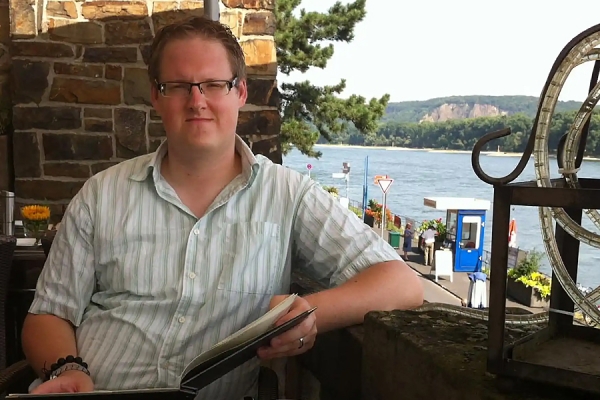 Hilding Neilson will discuss the relation between astronomy and colonization in a Sept. 15 lecture hosted by the Canterbury ElderCollege.
Hilding Neilson will discuss the relation between astronomy and colonization in a Sept. 15 lecture hosted by the Canterbury ElderCollege.
Hilding Neilson, a Mi'kmaw professor of physics at Memorial University, will discuss the relation between astronomy and colonization in the past, present, and future in a free public lecture hosted by the Canterbury ElderCollege on Thursday, Sept. 15.
Dr. Neilson is an interdisciplinary scientist, working on astrophysics and on the intersection of science, astronomy, and Indigenous knowledge. His presentation, entitled “The Night Sky Is Part of the Land: Colonization in Astronomy and Space Exploration,” is the first in the ElderCollege Indigenous Speaker Series.
“At the same time that Galileo observed the phases of Venus and the moons of Jupiter, European powers were colonizing the Americas and other parts of the world,” says Neilson. “This began a relationship between astronomy and colonization that continues today in terms of astronomers and nations building giant telescopes on Indigenous lands.”
He will discuss how Indigenous knowledges offer insights into the nature of the universe that do not exist in traditional western sciences and need to be a central part of the discussion humanities future in space and astronomy.
His talk will begin at 3 p.m. via Zoom or in person at Canterbury College, 2500 University Ave. West. Admission is free, but registration is required at www.eldercollege.ca.
Neilson will lead a symposium with the UWindsor physics department Friday at 10:30 a.m. on the subject “Indigenizing the Drake Equation: Exploring the Question of Life in our Galaxy through an Indigenist Lens.” It will explore a thought experiment to understand the ingredients necessary for life and advanced technological civilizations to exist on other worlds.
Both events are funded in part by the Faculty of Science and the federal New Horizons for Seniors Program.
The Indigenous Speaker Series will continue with presentations Oct. 11 and 12 by Mkomose (Andrew Judge), professor of Anishinaabe studies at Algoma University.
